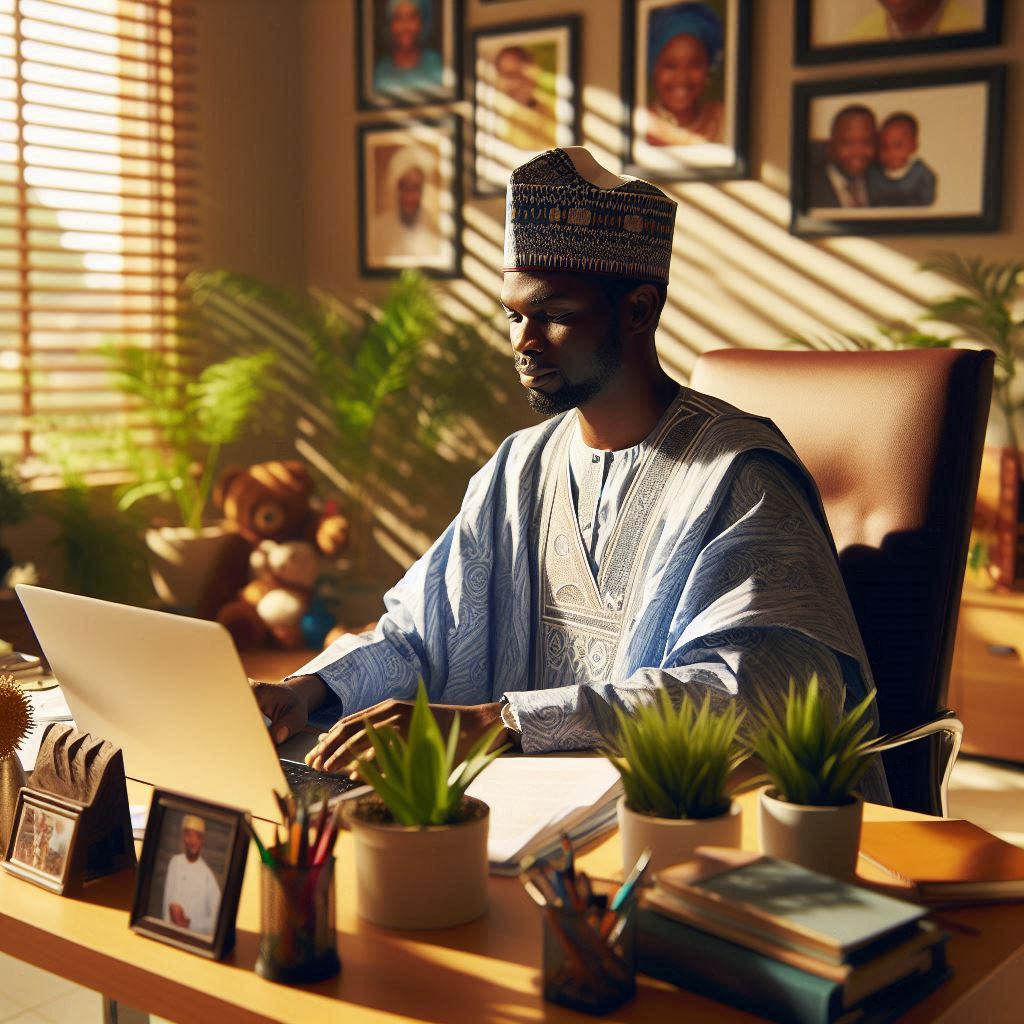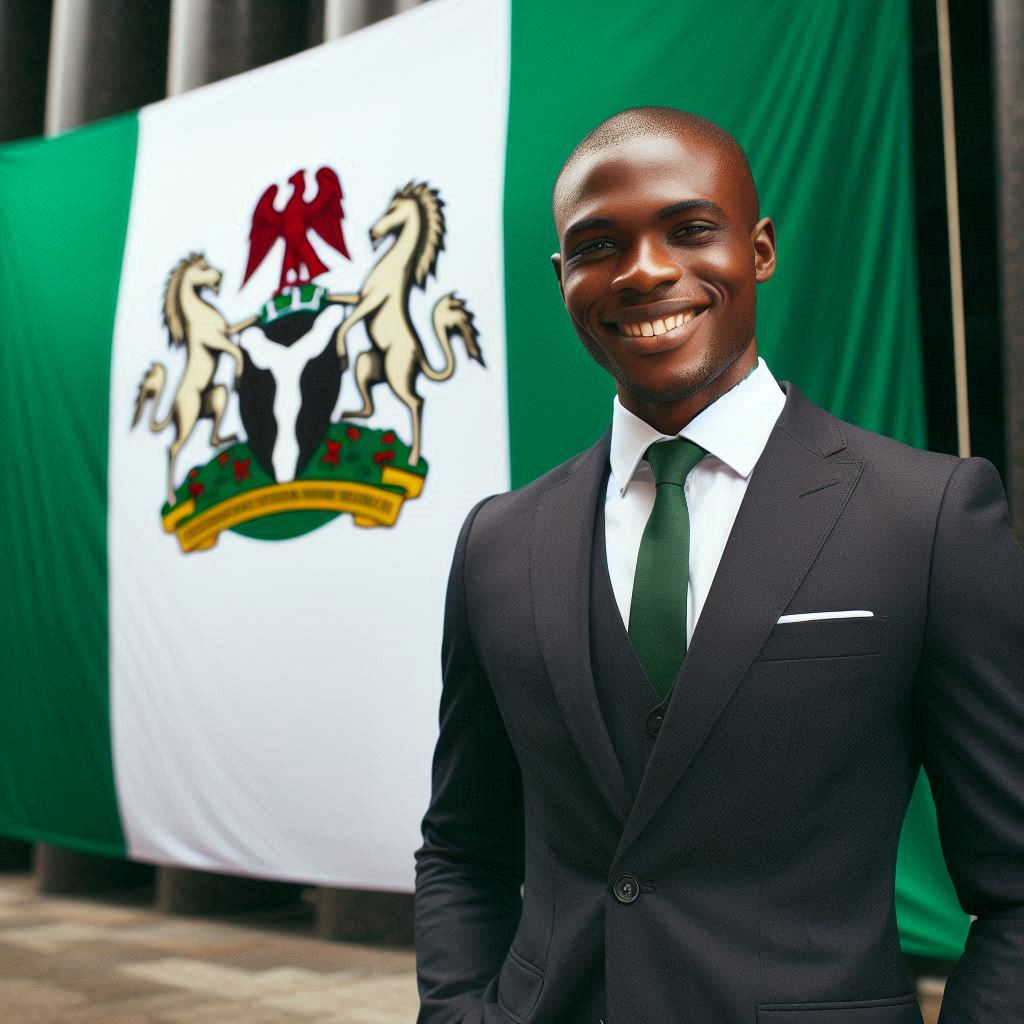Introduction
Understanding global political systems is crucial in today’s interconnected world. It helps nations navigate international relations and promote global stability. For Nigeria, a key player in Africa, comprehending these systems is especially important.
It informs foreign policy, economic strategies, and diplomatic efforts, allowing Nigeria to effectively engage with other countries and international organizations.
Global political systems encompass various governance structures, including democracies, authoritarian regimes, and hybrid systems.
Each system has its unique characteristics, advantages, and challenges. By studying these systems, countries can learn from each other’s experiences, adapting successful practices and avoiding pitfalls.
For Nigeria, this understanding is vital for its growth and development on the world stage. Nigeria’s perspectives on global political systems are shaped by its historical experiences, cultural context, and socio-economic realities.
As a former British colony, Nigeria’s political development has been influenced by Western democratic ideals, yet it has also been marked by internal challenges such as ethnic diversity and economic inequality.
This complex background shapes Nigeria’s unique viewpoint on global politics.
Nigeria’s Political History
Nigeria, located in West Africa, has a rich political history that dates back to the era of colonization by European powers. The country’s political journey from colonization to independence has played a significant role in shaping its perspectives on global political systems.
Colonization Period
- During the 19th century, Nigeria was gradually colonized by the British Empire through a series of military conquests and treaties.
- The country was amalgamated into the Colony and Protectorate of Nigeria in 1914, consolidating British control over the region.
- British colonial rule introduced a centralized administrative system and imposed indirect rule through traditional rulers in many parts of Nigeria.
Independence Movement
- In the 20th century, Nigeria witnessed a wave of nationalist movements and protests against British colonial rule.
- Prominent leaders such as Nnamdi Azikiwe, Obafemi Awolowo, and Ahmadu Bello played crucial roles in advocating for independence.
- Nigeria gained independence from British colonial rule on October 1, 1960, marking a significant milestone in its political history.
Post-Independence Challenges
- After gaining independence, Nigeria faced various challenges, including ethno-religious conflicts, political instability, and economic struggles.
- The country experienced a series of military coups and dictatorships, leading to a turbulent political landscape in the following decades.
- The Biafran War of 1967-1970 and the subsequent oil boom and bust cycles further shaped Nigeria’s political dynamics.
Key Political Events
Several key political events have played a crucial role in shaping Nigeria’s views on political systems and governance. These events have had a lasting impact on the country’s political trajectory and perspectives on global politics.
First Republic (1960-1966)
- The First Republic was characterized by regionalism and a parliamentary system of government with notable leaders such as Nnamdi Azikiwe and Tafawa Balewa.
- The era was marked by political tensions, ethnic rivalries, and economic disparities between the regions, leading to the eventual collapse of the republic.
- The military coup of 1966, led by Major Chukwuma Kaduna Nzeogwu, ended the First Republic and set the stage for subsequent military interventions in Nigerian politics.
Military Rule (1966-1999)
- Following a series of military coups, Nigeria experienced decades of military rule characterized by authoritarian regimes and human rights abuses.
- The civil war of 1967-1970, also known as the Biafran War, further deepened divisions within the country and laid the groundwork for future conflicts.
- The transition to civilian rule in 1999 marked a turning point in Nigeria’s political history, ushering in a period of democratic governance under President Olusegun Obasanjo.
Fourth Republic (1999-Present)
- The Fourth Republic has been marked by a mix of political stability, economic growth, and ongoing challenges related to corruption, security, and governance.
- Presidents such as Goodluck Jonathan and Muhammadu Buhari have sought to address these challenges while navigating the complexities of Nigeria’s diverse political landscape.
- The 2015 election of Muhammadu Buhari, a former military ruler, symbolized a shift towards accountability and transparency in Nigerian politics.
Therefore, Nigeria’s political history, from colonization to independence and beyond, has shaped its perspectives on global political systems.
The country’s journey through various political eras and key events has influenced its approach to governance, democracy, and international relations.
As Nigeria continues to evolve politically, its experiences serve as a valuable lens through which to view the complexities and nuances of global political systems.
Read: Exploring Semiotics in Communication Arts
Nigerian perspectives on democracy
When it comes to democracy, Nigerians hold various beliefs and attitudes that shape their perspectives.
One key aspect of Nigerian perspectives on democracy is their deep-rooted commitment to democratic values.
Nigerians generally believe in the principles of freedom, equality, and accountability that democracy embodies.
They see democracy as a system that allows for the expression of diverse opinions and the peaceful transfer of power.
However, Nigeria’s experience with democratic governance has been tumultuous and marked by challenges.
Corruption, electoral malpractice, and ethnic divisions have plagued Nigeria’s democratic journey.
The Influence of Nigeria’s Experience on Global Political Systems
This experience has significantly influenced Nigerians’ views on global political systems.
Nigerians have become more skeptical about the effectiveness of democracy in fostering development and stability.
- They see the flaws in their own democratic system mirrored in global politics.
- This has led to a level of disillusionment with democratic governance.
Furthermore, Nigeria’s history of military coups and authoritarian rule has shaped perceptions of alternative political systems.
Some Nigerians believe that a strong, centralized government may be more effective in addressing the country’s challenges.
- They view democracy as incompatible with Nigeria’s complex socio-political landscape.
- They may look to models of authoritarianism or technocracy as potential solutions.
On the other hand, there are Nigerians who remain steadfast advocates for democracy despite its shortcomings.
They argue that the problems facing Nigeria are not inherent to democracy but rather a result of weak institutions and poor governance.
- They believe that strengthening democratic institutions and promoting good governance is the key to addressing these challenges.
- They see democracy as the best system for ensuring accountability and inclusivity in governance.
In review, Nigerian perspectives on democracy are complex and multifaceted.
Key Takeaways
- Nigerians believe in democratic values but are critical of their country’s democratic experience.
- Their views on global political systems are influenced by Nigeria’s history and current political landscape.
- While some advocate for alternative political systems, others remain committed to strengthening democracy.
Ultimately, the future of democracy in Nigeria will depend on the ability of its leaders and citizens to address the challenges that have hindered its progress.
Read: Introduction to African and Asian Studies in Nigeria
Comparison of political systems
When comparing Nigeria’s political system with other global political systems, it is crucial to examine various aspects such as governance structures, mechanisms for accountability, levels of corruption, and the overall effectiveness in delivering public goods and services.
By doing so, we can gain insights into how Nigerians perceive the strengths and weaknesses of different political systems.
Governance Structures
- Nigeria: Federal system with executive, legislative, and judicial branches.
- USA: Federal system with separation of powers among the three branches.
- UK: Parliamentary system with a fusion of executive and legislative powers.
- China: Single-party system with a powerful central government.
Accountability Mechanisms
- Nigeria: Limited checks and balances, high levels of corruption.
- USA: Strong system of checks and balances, independent judiciary.
- UK: Parliamentary oversight, accountability to the Queen and Parliament.
- China: Limited political participation, lack of independent oversight.
Corruption Levels
- Nigeria: Rampant corruption at all levels of government and society.
- USA: Corruption exists but is generally lower compared to Nigeria.
- UK: Historically low levels of corruption, strong anti-corruption measures.
- China: High levels of corruption, especially among government officials.
Delivery of Public Goods and Services
- Nigeria: Inefficient delivery due to corruption, mismanagement, and lack of resources.
- USA: Relatively efficient delivery, well-established public service infrastructure.
- UK: High-quality public services, well-funded healthcare and education systems.
- China: Rapid improvement in public services, focus on infrastructure development.
Overall, Nigerians perceive their political system as plagued by corruption, weak accountability mechanisms, and inefficiencies in delivering public goods and services.
When compared to other global political systems, Nigeria falls behind in terms of governance effectiveness and transparency.
By understanding the strengths and weaknesses of different political systems, Nigerians can advocate for reforms that address the shortcomings in their own system and strive towards building a more just and equitable society.
Read: Famous Nigerian Alumni of Communication Arts Programs

Role of Nigeria in global politics
In analyzing Nigeria’s involvement in international politics and organizations, it is important to consider the country’s historical background and current position on the global stage.
Nigeria, as the most populous country in Africa and one of the largest economies on the continent, plays a significant role in shaping the political landscape both regionally and globally.
Nigeria’s involvement in international politics and organizations
- Nigeria has been an active participant in various international organizations such as the United Nations (UN), African Union (AU), and Economic Community of West African States (ECOWAS).
- The country has also taken on leadership roles in peacekeeping missions, conflict resolution efforts, and advocacy for African interests on the global stage.
- Nigeria’s involvement in international politics extends beyond its role in organizations, as the country has been a key player in regional security issues such as counterterrorism and maritime security.
- Furthermore, Nigeria’s membership in organizations like the Organization of Petroleum Exporting Countries (OPEC) highlights its influence in shaping global economic policies and energy markets.
How Nigeria’s position in global politics shapes their perspectives on global political systems
- Given Nigeria’s historical experience with colonialism and struggle for independence, the country’s perspectives on global political systems are shaped by a desire for sovereignty, equality, and justice.
- As a developing country with diverse ethnic, religious, and cultural backgrounds, Nigeria advocates for inclusivity and diversity in global governance structures to represent the interests of all nations, particularly those in the Global South.
- Nigeria’s position as a regional power in Africa influences its stance on issues such as peace and security, human rights, and sustainable development, leading to a commitment to diplomacy, dialogue, and cooperation in global politics.
- Despite challenges such as corruption, political instability, and economic inequality, Nigeria’s engagement in global politics reflects a commitment to promoting peace, stability, and prosperity in the international community.
In general, Nigeria’s role in global politics is multifaceted and complex, driven by historical, cultural, and economic factors that influence the country’s perspectives on global political systems.
By actively participating in international organizations and advocating for inclusive and equitable global governance, Nigeria seeks to contribute to a more peaceful, just, and sustainable world order.
Read: Communication Arts: Job Prospects and Salaries
Challenges and Opportunities
Nigeria faces significant challenges in navigating global political systems, yet it also has numerous opportunities to contribute to and influence these systems.
Challenges in Navigating Global Political Systems
One major challenge is political instability. Internal conflicts and regional tensions can undermine Nigeria’s ability to engage effectively on the global stage. Political instability distracts from international diplomacy and weakens Nigeria’s negotiating position in global forums.
Corruption is another significant hurdle. It erodes public trust, weakens institutions, and hampers Nigeria’s efforts to build strong international partnerships. Corruption also deters foreign investment and aid, limiting economic growth and development.
Economic dependency poses a challenge. Nigeria’s heavy reliance on oil exports makes it vulnerable to global market fluctuations. This dependency limits economic diversification and impacts the country’s ability to leverage economic power in global politics.
Inadequate infrastructure and limited technological advancement also present challenges. Poor infrastructure hampers trade and communication, reducing Nigeria’s competitiveness in the global market.
Limited technological development restricts access to information and hinders innovation, affecting Nigeria’s ability to keep pace with global advancements.
Furthermore, Nigeria faces the challenge of balancing domestic priorities with international obligations.
Addressing pressing issues like poverty, unemployment, and healthcare requires significant resources and attention. Balancing these needs with active participation in global political systems can be demanding.
Opportunities for Nigeria to Contribute to and Influence Global Political Systems
Despite these challenges, Nigeria has numerous opportunities to contribute to and influence global political systems. Its strategic location and large population make it a key player in African and global politics.
Nigeria’s active participation in international organizations like the United Nations, African Union, and ECOWAS provides platforms to influence global policies. By advocating for African interests and global peace, Nigeria can shape international agendas and promote regional stability.
Economic potential is another opportunity. Diversifying the economy beyond oil, investing in agriculture, technology, and manufacturing can enhance Nigeria’s economic strength. A robust economy provides leverage in international negotiations and attracts foreign investment.
Nigeria’s cultural diversity and rich heritage offer opportunities for soft power diplomacy. Promoting Nigerian culture, arts, and education globally can build positive international relations and enhance Nigeria’s global influence.
Cultural exchange programs and international collaborations can foster mutual understanding and goodwill.
Youth demographics present a significant opportunity. With a large and youthful population, Nigeria has the potential to drive innovation and economic growth.
Investing in education, skill development, and entrepreneurship can harness this demographic dividend, positioning Nigeria as a leader in various fields.
Conclusion
As we conclude, it is evident that Nigerian perspectives on global political systems shape the way they interact with the world.
Understanding these perspectives is crucial in fostering effective communication and cooperation between Nigeria and other countries.
Through this blog post, we have explored the historical, cultural, and economic factors that influence Nigerian viewpoints on global politics.
From colonial legacies to the impact of globalization, Nigerians have a unique lens through which they view international relations.
We have also discussed how Nigeria’s role in regional and international organizations reflects its interests and priorities on the global stage.
The country’s diplomatic engagements and foreign policy decisions are influenced by its domestic challenges and aspirations.
Transform Your Career with Expert Guidance
Get personalized mentorship consulting that’s tailored to your unique path. Our expert advice is actionable and exclusive.
Get StartedIt is essential for policymakers, academics, and global citizens to appreciate Nigerian perspectives on global political systems to address common challenges and promote mutual understanding.
By acknowledging Nigeria’s historical experiences and current realities, we can build more inclusive and effective global governance structures.
In closing, Nigeria’s diverse society and complex history contribute valuable insights to the global discourse on politics and governance. By recognizing and respecting Nigerian perspectives, we can create a more equitable and peaceful world for all nations to thrive together.




